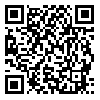BibTeX | RIS | EndNote | Medlars | ProCite | Reference Manager | RefWorks
Send citation to:
URL: http://jdn.zbmu.ac.ir/article-1-352-en.html
Introduction: Diabetes is a disease of high prevalence and imposes high costs on people. Therefore, it is important to study the non-invasive and effective therapeutic methods with low side effects in the prediabetes stage that could be accepted by the individuals. With this background in mind, the present study aimed to evaluate the impact of the training, which is based on the Islamic lifestyle model on fasting blood sugar (FBS) and glycosylated hemoglobin in people with prediabetes in Lamerd, Iran
Materials and Methods: This randomized controlled clinical trial was performed on 76 subjects with prediabetes who had FBS of 100-125 mg/dL or glycosylated hemoglobin of 5.7-6.4%. The participants were selected through purposive sampling method from Lamerd, Iran and were randomly divided into two groups of 38. The intervention included four sessions of Islamic lifestyle training provided based on the Kaviani lifestyle model. The FBS and glycosylated hemoglobin levels were measured prior to and three months post-intervention in both groups. All the data were analyzed by Chi-square, independent t-test, paired t-test, and Mann-Whitney using the SPSS software version 19.
Results: The mean age of the experiment and control groups was 52.89(12.98 )and 47.34(11.71 )years, respectively. There was no significant difference between the two groups in terms of age and gender (P>0.05). The difference between the mean FBS of pretest and post-test was statistically significant (P<0.001). Moreover, the glycosylated hemoglobin was significantly different between the test and control groups (P<0.001).
Conclusion: According to the results of this study, the FBS and glycosylated hemoglobin reduced significantly after educating the Islamic lifestyle to the subjects with prediabetes. Consequently, in order to prevent diabetes, planning for health approaches aimed to define the culture- and religion-based lifestyle is recommended
Received: 2019/04/13 | Accepted: 2019/05/5 | Published: 2019/05/5
| Rights and permissions | |
 |
This work is licensed under a Creative Commons Attribution-NonCommercial 4.0 International License. |





